5 Russian Laureates of the Nobel Prize for Literature of the 20th Century
For more than a century, the Nobel Prize has been one of the most prestigious awards in the world. Russians have received several Nobel Prizes as well, and the biggest number in literature. Today I am going to tell you about 5 Russian authors, who were awarded the Nobel Prize for their work.
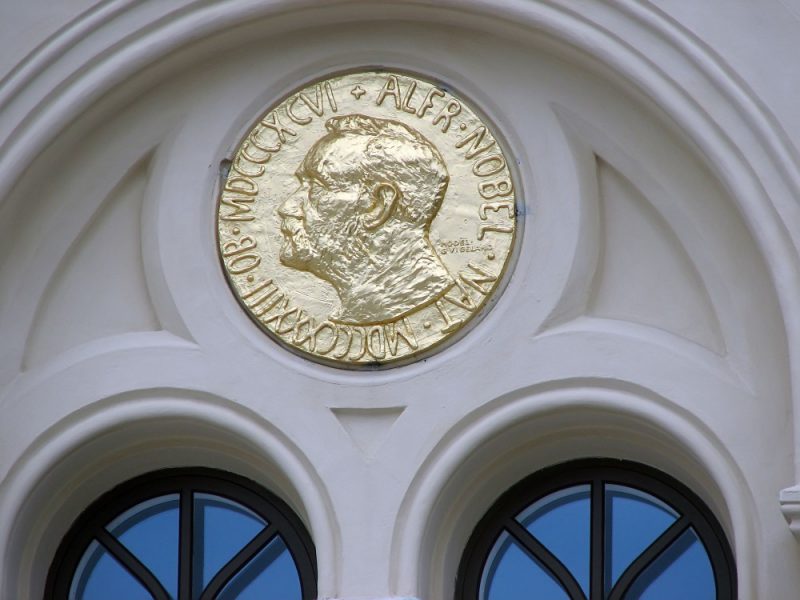
The last Russian romantic: Ivan Bunin
In 1933, Ivan Bunin became the first Russian Nobel laureate “for the strict artistry with which he has carried on the classical Russian traditions in prose writing”.
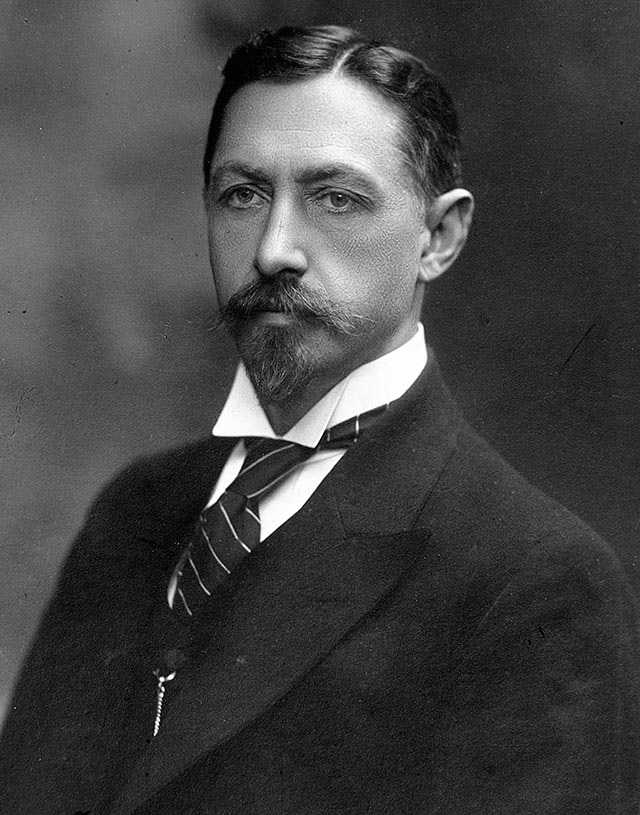
Ivan Bunin was born in the city of Voronezh in 1870 in a noble but impoverished family. He was homeschooled and got an excellent education, studied foreign languages and drawing. At the age of 11, he began to write his first stories and poems. Ivan Bunin was very sensitive and could see a whole world in every little detail. Favorite subjects of his early, pre-revolutionary works were observations of the simple life of village peasants. In his works, Bunin did not describe their struggle but attempted to tell rather about their dreams and thoughts, about their honesty and openness, about their love experiences and faith. These topics were not new to the Russian literature, but Bunin managed to show the life of his characters in a new way. Besides that, Ivan Bunin also described the beauty of Russian nature, finding in it ways to describe the features of the Russian mentality. The most famous of his stories collections was the series “Dark Avenues”.
The 1917 Revolution inspired horror to the Bunin family, and in 1920 they emigrated to France. In Paris, Ivan continued to engage in literary activities and helped migrants from former Tsarist Russia. The topics of his work has changed there as well: Bunin dove deep into his memories, narrated the dramatic events of his life and talked about pre-revolutionary Russia.
He donated his Nobel Prize to various societies and families of Russian migrants. Bunin himself took the emigration very hard and remained fully interested in the fate of his Motherland. During the Second World War, he categorically refused all contacts with the Nazis and moved to the Maritime Alps in 1939. He returned to Paris only in 1945. In 1953, the writer’s health worsened, and he died in his Paris apartment. Ivan Bunin is buried in the French capital at the cemetery of Sainte-Geneviève-des-Bois.
If you are interested to read Ivan Bunin in Russian, you can find a lot of his works here: http://bunin-lit.ru/bunin/rasskaz.htm
Guilty without guilt: Boris Pasternak
The name of the writer Boris Pasternak is known all over the world thanks to his novel “Doctor Zhivago” which was translated into many languages. In 1958, the Nobel Committee for literature awarded Boris Pasternak the Prize “for his important achievements both in contemporary lyrical poetry and in the field of the great Russian epic tradition”, however, Pasternak was forced to refuse the prize.
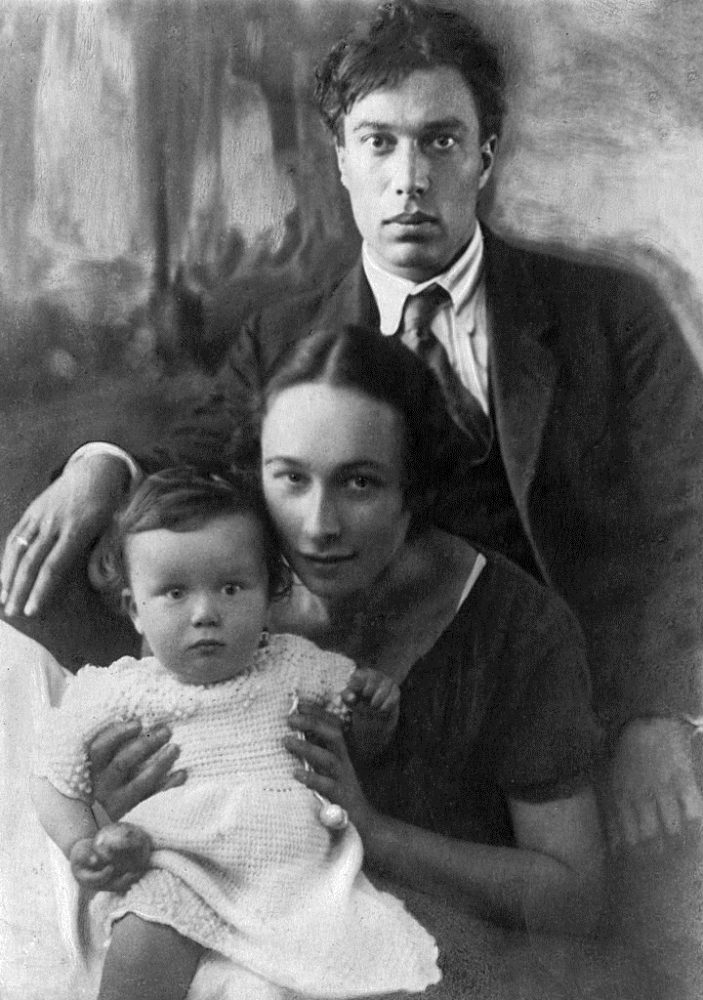
Pasternak was called an “ideological Judas”; the literary environment of the USSR excluded Pasternak unanimously from the Union of Writers of the USSR, at the same time submitting a petition to deprive him of his Soviet citizenship. The society denounced Boris Pasternak as being anti-Soviet, despite the clear lack of reasons for such accusations. The massive campaign against Pasternak forced him to decline the Nobel Prize. The author sent a telegram to the address of the Swedish Academy, in which he wrote: “By virtue of the meaning that the award given to me received in the society to which I belong, I must refuse it. Please do not consider my voluntary refusal to be an insult”.
Despite his forced rejection of the Nobel Prize, Boris Pasternak did not become less readable. Spiritual search and changes in the view of the world in various social strata at the turning points of Russian history that Pasternak reflected in his work remain attractive to readers to this day.
You can read some of the books of Boris Pasternak in original here: https://knijky.ru/authors/boris-pasternak
Don Cossack: Mikhail Sholokhov
Mikhail Sholokhov got a Nobel Prize in literature in 1965, for “the artistic power and integrity with which, in his epic of the Don, he has given expression to a historic phase in the life of the Russian people”.
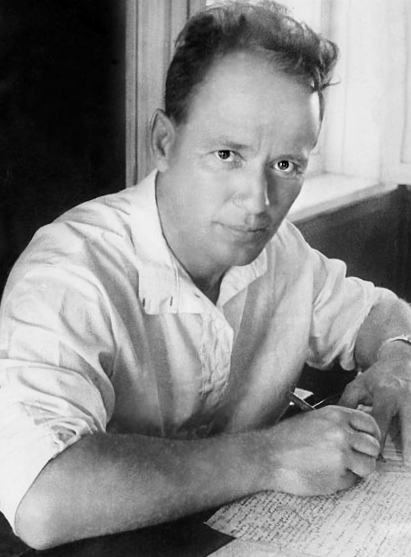
Mikhail Sholokhov was born in 1905 on a farm in the village of Vyoshenskaya. It was a family of the Don Cossacks and simple peasants who sows bread. The childhood and youth of the future laureate fell on the turbulent times of the First World War and the coming revolution. During the Second World War Sholokhov served as a war correspondent. It is not surprising that later the author has chosen the topic of war as the main theme for his literary works. Besides the war, Mikhail Sholokhov talked about the events in Russian villages during the collectivization which he witnessed. The main asset of Sholokhov’s work became the description and preservation of the Cossack culture.
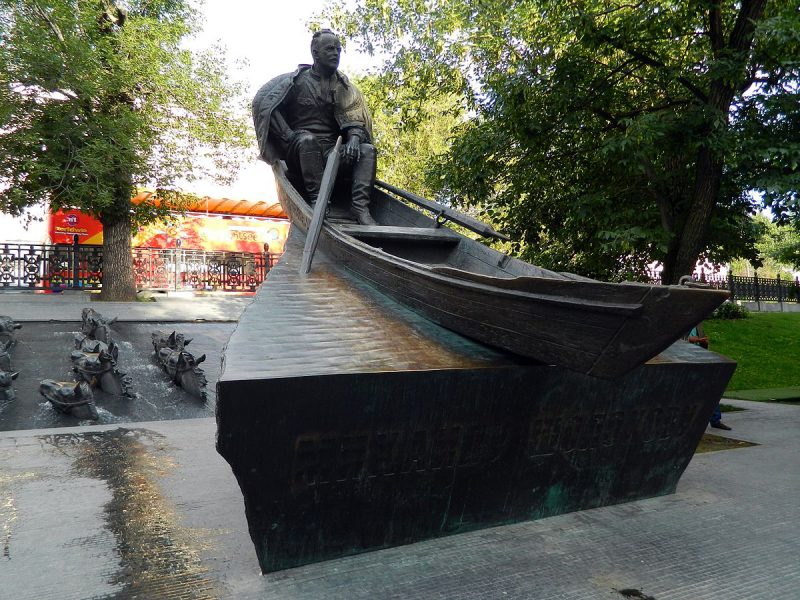
His most famous novel, “The Quiet Don”, is an epic novel that did not only describe the heavy burden of war and talk about death and love; yet, the main question that Sholokhov silently asked the reader was “How to make the right choice?” The protagonist of this novel is at a life’s crossroads: between feelings and duty, happiness and disgrace. Perhaps, this is why it captures readers.
You can read the novel “The Quiet Don” in Russian here: https://knijky.ru/books/tihiy-don
Many Faces of Alexander Solzhenitsyn
Alexander Solzhenitsyn was born in 1918 in Kislovodsk. Until the end of his life in 2008, he remained and still remains an ambiguous personality and a phenomenon of Russian culture and literature. His life path is a mix of contradictory ideas, which the writer refused and accepted at different times. It was his search for the key values of life, and not just for him but for the whole country, that led him in 1970 to be nominated for the Nobel Prize “for the ethical force with which he has pursued the indispensable traditions of Russian literature”.
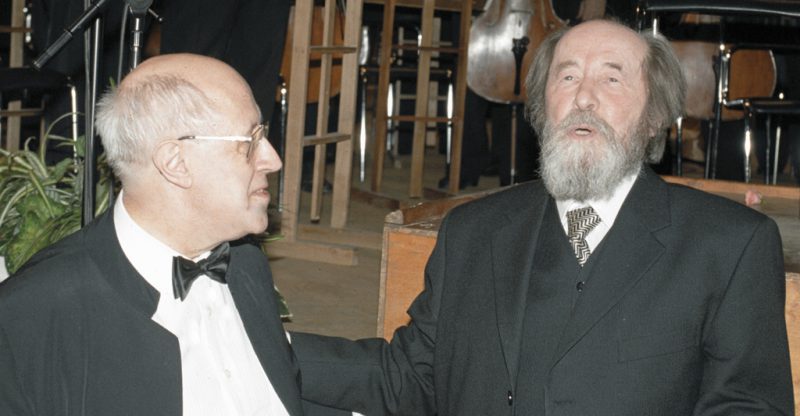
Alexander Solzhenitsyn is known as a dissident, but a few know that at the beginning of his life he was a supporter of Bolshevism. However, during the Second World War, his convictions changed, and he begun to keep a diary in which he wrote critical essays about the communist system and Stalin. This eventually brought to his arrest in the Autumn of 1945. This moment marked the beginning of his numerous arrests and his literary activities.
During his first exile, a cardinal change occurred in Solzhenitsyn’s mind, and having abandoned the ideas of communism and Leninism he became a supporter of Orthodox-patriotic ideas. He spent the next ten years working on such colossal works as “One Day of Ivan Denisovich”, “Matryonin Dvor”, “GULAG Archipelago”, “Red Wheel”, “In the First Circle”, etc. All these works are united by criticism of the communist regime, a search for moral path in the development of Russia, and an appeal to Orthodoxy. His work is characterized by a deep dive in the characters’ psyche, which is achieved through a scrupulous and detailed description of what is happening. After the publication of several of his works, Solzhenitsyn was recognized as an anti-Soviet dissident, and in 1974 he and his wife were deported from the USSR.
In exile, the Solzhenitsyn family first lived in Switzerland. At that time, Alexander traveled a lot and gave lectures at major universities in Europe, the USA, and Canada. From 1976 to 1994, he lived in New York. After the collapse of the Soviet Union, the writer and his wife returned to Russia where he was awarded various honors and elected as a member of the Russian Academy of Sciences which became his last career move before his death in 2008.
You can read some the books of Alexander Solzhenitsyn in Russian here: https://knijky.ru/authors/aleksandr-solzhenicyn
Language is God: Joseph Brodsky
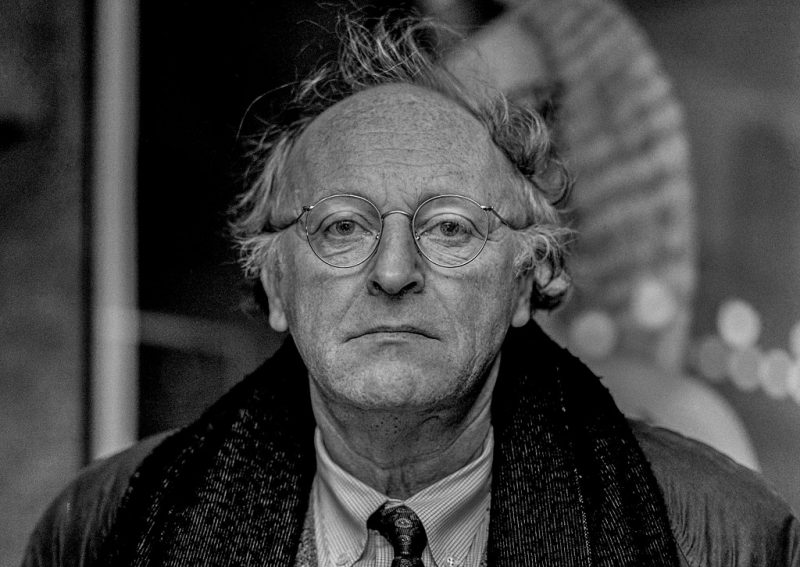
Throughout his life, Joseph Brodsky was convinced that language and literature are the two most important and essential pillars of humanity.
Joseph Brodsky was born in 1940 in Leningrad and began writing his first poems at the age of 18. His poems – complex, multi-valued, sometimes heavy, and allegorical – were not welcomed by the editors of Leningrad newspapers, who refused to publish him. Nevertheless, he continued to write poems, learned English and Polish on his own, translated in Russian works of American poets and Polish essayists, and was dedicated to create a a new encyclopaedia of Russian literature.
However, his popularity in literary circles began to bother the official bodies, so in 1964 a criminal case was brought against him with the accusations in parasitism. After the trial, Joseph Brodsky was sent into exile for a year. Upon his returning to Leningrad, the prosecutions and accusations did not stop, and in 1972, the future Nobel laureate was expelled from the country. Forced emigration became a tragedy of Joseph’s life. After the expulsion, thanks to friends and acquaintances, he moved to the United States where he got a position as a literature teacher: first at the University of Michigan and then at the universities of New York. He continued to write poetry in Russian, tried himself in essay writing in English, and conducted large-scale campaigns to popularize literature.
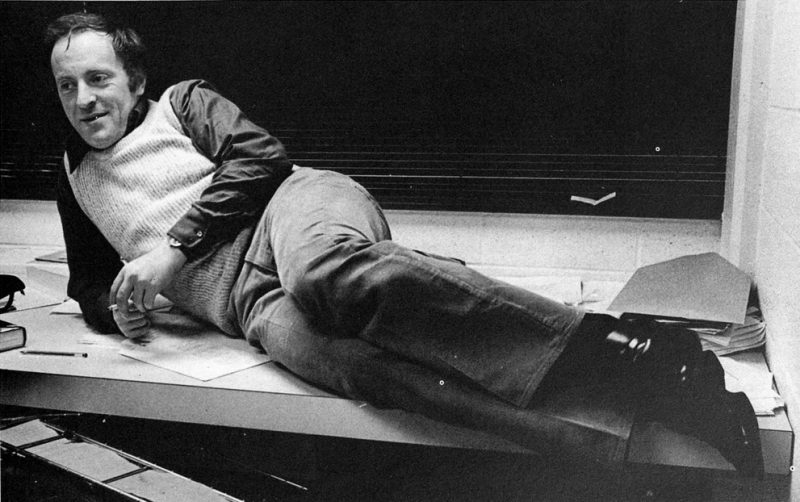
His poetry is a microcosm where God and Devil, faith and atheism, chastity and cynicism get along. In his poems, there are many allegories and references to ancient stories. The works of Joseph Brodsky reflects such feelings as despair, love and irony.
The pinnacle of his literary activity was the Nobel Prize in 1987 «for an all-embracing authorship, imbued with clarity of thought and poetic intensity».
Joseph Brodsky never returned to Russia. In 1996, the poet died and was later buried in Venice at the cemetery of San Michele.
You can read some of Joseph Brodsky’s books in Russian here: https://knijky.ru/authors/iosif-brodskiy
Conclusion
Receiving the Nobel Prize is a great moment in the life of each laureate. Today you learned about five authors who have reached their literary Olympus. Each of them is unique, but all of them have one thing in common: the whole-hearted love for Russia, Russian literature and the Russian language.
What else would you like to know about the Russian literature? Let us know in the comments!
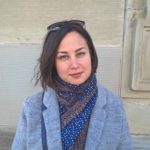
Culturologist, professor of Russian as a foreign language and promoter of Russian culture.
Aleksandra gives Russian lessons via Skype.






